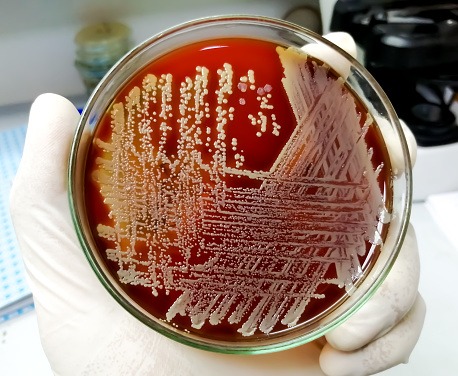Water Testing
Know more about Services

The presence of certain contaminants in our water can lead to health issues, including gastrointestinal illness, reproductive problems, and neurological disorders.
Infants, young children, pregnant women, the elderly, and people with weakened immune systems may be especially at risk for illness.
In addition, drinking water that is not properly treated or that travels through an improperly maintained distribution system (pipes) may also create conditions that increase risk of contamination.
A superior quality of water is crucial to the economic, health, and social well-being of the people. It is vital to check the suitability of the water quality before its use. It can be for irrigation, livestock watering, drinking, or spraying. It will also help you in making an informed decision about how to use the water and what should be done about its purity.
- Potable Drinking Water as per IS: 10500-1991
- Packaged Natural mineral Water as per IS: 13428-2005
- Water for Processed Industry as per IS: 4251-1967
- Packaged drinking water other than packaged natural mineral water as per IS: 14543-2004
- Swimming Pool water as per IS: 3328-1993
- Industrial effluent water
Please contact us to see if we can help you with your Water Testing requirements.
Microbial Testing
Know more about Services
Microbiological analysis of food products is the use of biological, biochemical, molecular or chemical methods for the detection, identification or enumeration of microorganisms in a material (e.g. food, drink, environmental or clinical sample).
What is the purpose of microbiological testing?
In the food industry, microbiological tests are essential to prevent spoilage and maintain food safety. This includes the identification of pathogens that may pose a risk to human health in food products, and the investigation of food poisoning outbreaks to determine their causes and prevent recurrence
Parameters tested in Food, Water & Environmental samples
- Clostridium perfringen
- Escherichia coli
- Listeria monocytogenes
- Pseudomonas aeruginosa
- Salmonella spp
- Staphylococcus aureus
- Total bacterial count
- Total Coliform count
- Yeast & mould count
Other Specilaized parameter:
- Efficacy Testing of Hand sanitizer, Phenyl and other antibacterial solutions
- Bacterial Endotoxin Test

Nutritional Labelling
Know more about Services

Nutrition labelling is a requirement from the FDA on most beverages and packaged foods. These labels, also called the Nutrition Facts label, show the nutrient content of a food product to consumers and guide them in food selection.
As per FSSA 2006 every pre-packaged food should carry a label.
Nutritional labelling testing can benefit various food businesses as it can accurately determine the nutrients information within the product, thereby adding more value to the product.
Aquatestlab team of nutritional testing and labeling specialists lead the industry in regulatory compliance knowledge. Trust Aquatestlab with your nutrition testing and labeling needs and you can be confident in the results.
Analysis of components for Indian Nutritional Labelling
- Protein
- Fats
- Total Sugar
- Carbohydrates
- Energy/Calories
Analysis of components of US, Canadian & Australian Nutritional Regulations.
- Total Fats
- Saturated Fat
- Trans Fat
- Cholesterol
- Sodium
- Total Carbohydrates
- Dietary Fiber
- Total Sugars
- Added Sugar
- Protein
- Vitamin D
- Calcium
- Iron
- Potassium
Why partner with Aquatestlab?
- Complete confidence in your product labels
- Access to the industry’s most knowledgeable regulatory compliance specialists
- All in one pricing and one-stop shop testing for ease and affordability
In case you need to add or remove few parameters feel free to ask our sales representative.
Please contact us to see if we can help you with your Nutritional Labelling requirements.
Shelf-Life Testing
Know more about Services
A product's “shelf life” generally means the length of time you can expect a product to look and act as expected and to stay safe for use. This length of time varies, depending on the type of product, how it is used, and how it is stored
Shelf-life testing is designed to provide an objective measure of the quality factors that define the food and the point at which failure occurs. This failure is the point at which the food exhibits physical, chemical, microbiological, or sensory characteristics that are unacceptable to the consumer
FSSAI’S guidelines for shelf life
FSSAI's new regulation states that “No article of food shall be cleared from customs unless it has a valid shelf life of not less than 60 per cent at the time of import”.
Legal requirements & responsibilities for shelf life
General Food Law
General food safety requirement are that food must not be placed on the market if it is unsafe or unfit for consumption.
Responsibility
Generally, the manufacturer of food is responsible for setting and validating the shelf life. However, this responsibility may also fall to secondary manufacturers like co packers, re-packers, food caterers, food retail outlets etc. depending on specific circumstances
Why Choose Aquatestlab over other Lab
We here at Aquatestlab take care of each and every parameter in consideration, more over to just providing you a certificate we provide you the complete shelf life study report
Please contact us to see if we can help you with your Shelf Life Analysis requirements.

